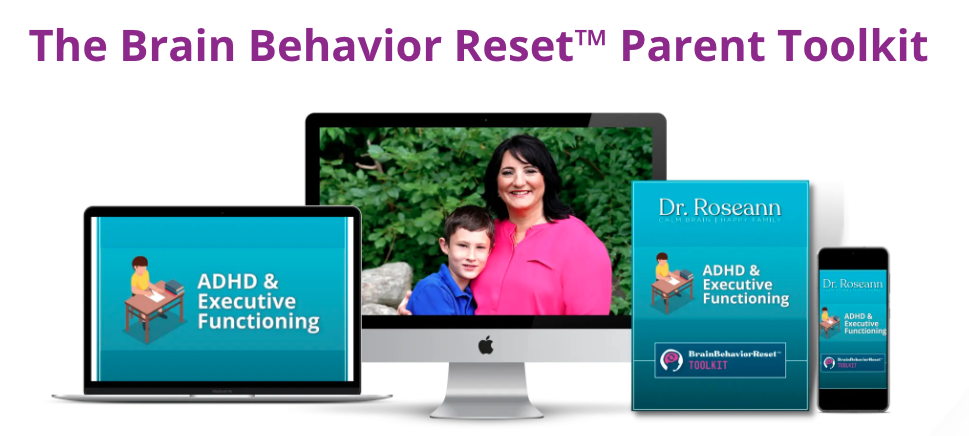You can’t build a house without a good foundation and the same applies to executive functioning. The same way that a roof can’t go on the house without a good foundation. Many people struggle with accomplishing things and producing work even at the starting point.
It is thus important for us to discuss the foundational skills of executive function to know where we should start. It will also definitely help us reach higher level skills like writing and completing high level work.
What are the foundational skills for executive functioning?
We’ve mentioned that executive functioning is divided into two aspects: foundational skills and advanced executive functioning skills. For now, we’ll be focusing on the foundational skills to have a solid ground and in depth understanding on what executive function is.
These skills are response inhibition, working memory, emotional control, good flexibility in your brain, sustained attention, staying on task, being able to stick with it, and starting tasks, or what we call task initiation.
But first, we have to clarify that attention is the brain's ability to alert whereas executive functioning is planning or prioritizing for a future event, results or outcome. And so, people with great executive functioning tend to visualize or think about the results when they’re accomplishing tasks.
As for people without good executive functioning, they have a hard time focusing and visualizing these outcomes. So the number one foundational skill for executive functioning is response inhibition which means putting the brakes on, being able to shift gears, engaging in a task, and controlling your impulses at the same time.
Commonly, kids with ADHD or executive function disorder are easily distracted. When we talk about distractibility, we’re referring to the brain's inability to control impulses. And if we don't control ourselves behaviorally and cognitively, we can't build from it.
It’s all about reinforcing and shaping the behaviors you want.
They say practice makes perfect and there’s some truth behind it since it’s all about reinforcing and shaping the behaviors you want. And that takes a lot of practice more than you might think.
In fact, as I’ve mentioned in one of my previous podcast episodes, it takes 34 times to master something at a neat level. If you have a learning or processing problem, anything that's interfering with your thinking, anxiety, depression, it's going to be three times that amount.
We always have to consider the brain in parenting. We need to look at research. We need to make informed decisions. Also, we have to keep in mind that our kids aren't doing this or acting like this on purpose. If you think your kids are doing this on purpose, they're not.
It’s important for kids to learn how to self-regulate to support their controlled responses. To emphasize, we have to shape the behaviors we want. We want to show them what to do and then reinforce them. That's how behaviorism works and it’s a great resource for parents.
What are the different kinds of memory?
When we talk about memory, there are all sorts of memories. We have working memory, visual memory, auditory and kinesthetic. According to the different amounts of memory, we have long term recall and short term recall. So we have a complex field of memories.
But what we use a lot is the working memory. It's pretty useful when we need to hold a certain amount of information for a short amount of time. That's our working memory.
We have to hold multiple commands all the time. That's why we use working memory too much. We scaffold things to help us remember we do structure, we do routines, we do batching. We write things down. There are so many ways to help support us.
Emotional control is more about cognitive flexibility.
There is an overlap between emotional control and cognitive flexibility. Many kids with autism, ADHD, anxiety, depression, PANS and PANDAS don’t have emotional control.
We’ve said that what we need is to regulate the brain and the best way to do it is to have neurofeedback. It is amazing at creating a regulated behavioral response as it regulates the brain and it certainly enhances flexibility.
Cognitive flexibility is the ability to shift gears to be able to handle unexpected things. Many of our kids can't handle the unexpected and they tend to freak out when faced by such. They view a small problem as something concerning.
There is a problem in their brain's ability in perception that leads to emotional dysregulation. So it’s crucial that we work on cognitive flexibility and emotional flexibility and this might take a long time to do. When you have a kid who struggles with emotional control, that is because they do not see an end result and they do not see a solution.
Can you keep paying attention in the real world?
Another important foundational skill is sustained attention which is in line with the question we usually get is whether we can keep paying attention in the real world during non-preferred or uninteresting tasks.
It’s expected that people with good attention can sustain attention even when they find the tasks uninteresting while people with poor attention can't. But we also have to consider that attention could be impaired for many reasons.
Make sure to stick with us as we dive more into these kinds of topics that will help you get through the ups and downs of parenting.
Links and Resources:
Is your child struggling with attention and executive functioning skills? Learn how to get your kid to listen and finish tasks in 30 days without the constant nagging and fighting. Get the Dr. Roseann's Parenting Toolkit for only $47 today!
➡️ Join our FREE Natural Parenting Community to receive science-backed resources for your child and family. Join here.
➡️ Get help from Dr. Roseann and her team. Apply here.
➡️ “Is it ADHD or something else?” Take the quiz.









